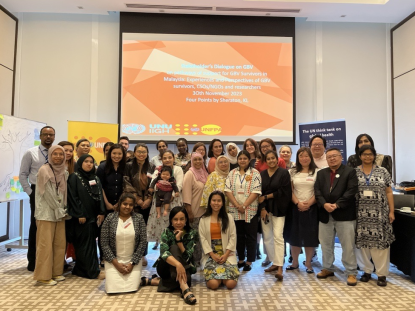Dr. Aparna Mukherjee is a Postdoctoral Research Fellow at the United Nations University – International Institute for Global Health (UNU-IIGH). She is currently leading projects on implementation research focusing on intersectionality in gender and health. Her work at IIGH is particularly around sexual and reproductive health and rights, self-care health interventions and digital health. She is also supporting capacity building, training, and advocacy to enhance global health challenges resolution, particularly in the Asia Pacific region.
Before joining UNU-IIGH, Aparna worked in India as a Monitoring and Evaluation Lead at the Karnataka Health Promotion Trust, prior to which she was teaching at the School of Social Work at Tata Institute for Social Sciences (TISS) and was also serving as a faculty coordinator for research at the National Corporate Social Responsibility Hub, TISS. She has also worked as a research officer in WHO’s longitudinal multi-country study on adult health and aging (SAGE) and as well in the Department of Perspective Planning at the Niti Aayog (Planning Commission, Government of India).
Aparna holds a Ph.D. in Population Studies from the International Institute for Population Sciences. She has attained a dual master's degree, with specializations in both Economics and Demography. She was also a Policy Communication Fellow at the Population Reference Bureau and has earned a master’s level diploma in gender studies from the University of Oslo. She has been a visiting research fellow at the Harvard Center for Population and Development Studies.
She is keen on using interdisciplinary and participatory action research methods to address complex health issues through a gender and rights lens. Her research portfolio covers a wide range of areas, such as early marriage, adolescent health, gender-based violence, comprehensive primary health care, TB, and HIV. She has experience working with different stakeholders including communities, policymakers, civil societies, research think tanks, and academia.


